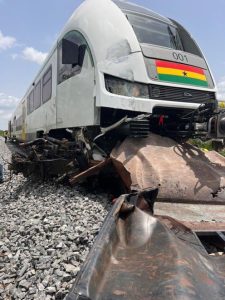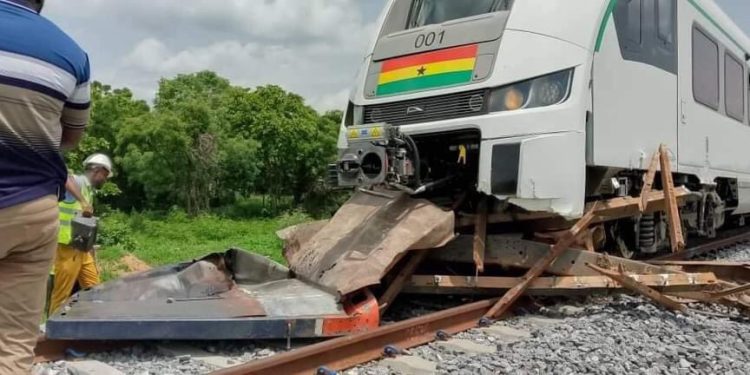In a recent turn of events, the much-anticipated new trains imported from Poland have hit a snag during their test run in Tema, Ghana. The incident, which occurred unexpectedly, has raised questions about the potential financial ramifications for the country. Sammy Gyamfi, the National Communications Officer for the National Democratic Congress, took to his Facebook page to express concerns over the matter, posing a poignant question: “Isn’t this financial loss to the country?”
The trains, hailed as a modernization effort to upgrade Ghana’s railway infrastructure, arrived with much fanfare and expectations. However, the unfortunate accident during the testing phase has cast a shadow over their debut. While details about the extent of the damage and the cause of the accident remain scarce, speculations and concerns about the financial implications are rife.
Gyamfi’s query strikes at the heart of the matter. With significant investments made in procuring and importing these trains, any setbacks or accidents undoubtedly raise questions about the prudent use of public funds. Beyond the immediate costs of repairing or replacing the damaged trains, there are broader concerns about the delay in the modernization efforts and the potential impact on the country’s transportation sector.
Moreover, the incident underscores the importance of thorough testing and safety measures before deploying new infrastructure. While accidents can happen, especially during the testing phase, ensuring the safety and reliability of such investments is paramount. It also highlights the need for transparency and accountability in procurement processes to mitigate risks and address any lapses promptly.

As investigations into the accident unfold, stakeholders, including government officials, transport authorities, and the public, await answers regarding the cause and the way forward. It is essential not only to assess the immediate financial implications but also to reevaluate the procurement and testing procedures to prevent similar incidents in the future.
Ultimately, while setbacks like this can be costly and frustrating, they also present opportunities for learning and improvement. By addressing the underlying issues and implementing necessary reforms, Ghana can move forward with its ambitions of modernizing its railway infrastructure while minimizing the risks of financial losses and accidents.

